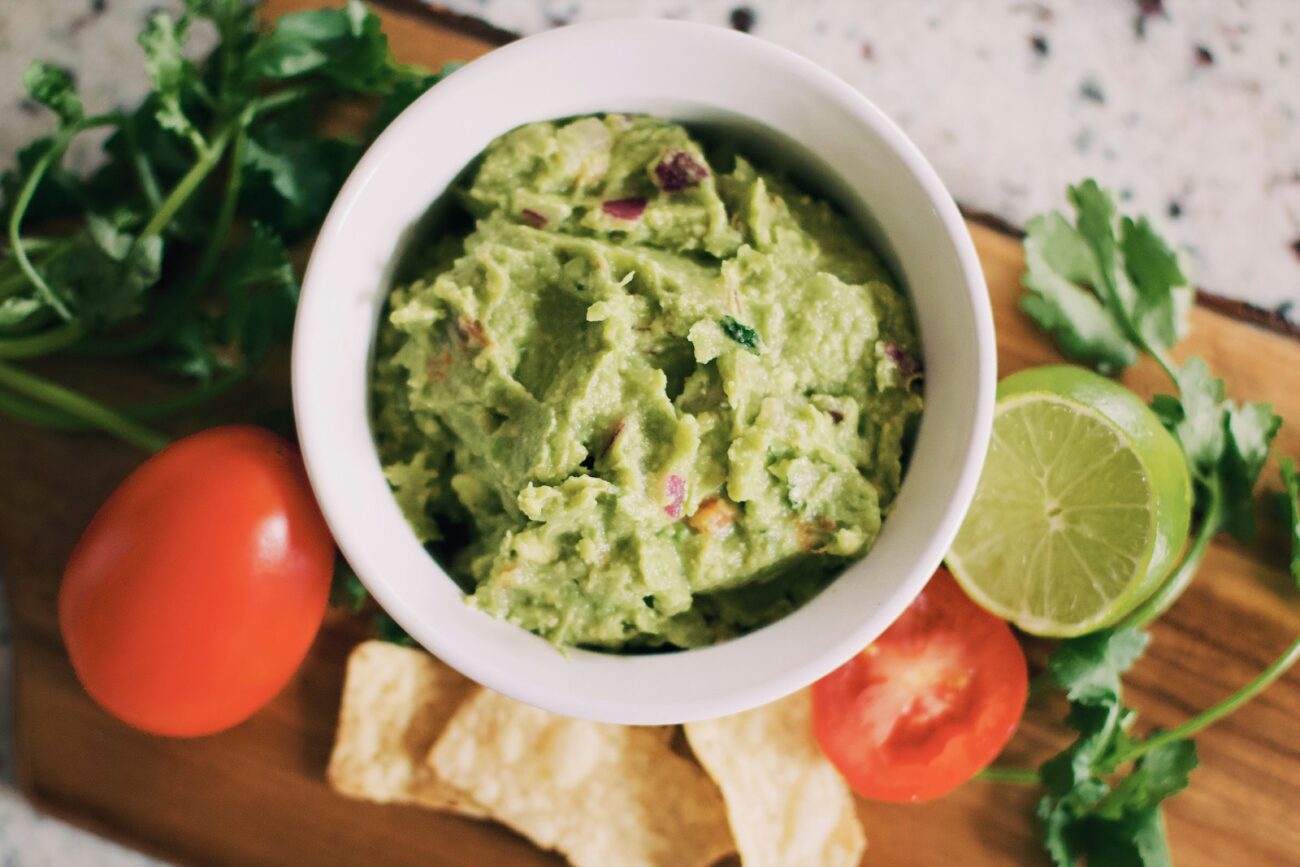Guacamole, the beloved avocado-based dip, is a staple in Mexican cuisine and has gained worldwide popularity for its rich, creamy texture and vibrant flavor. Made primarily from ripe avocados, lime juice, onions, cilantro, and spices, guacamole is not only delicious but also incredibly nutritious. Whether you’re dipping tortilla chips, spreading it on toast, or using it as a topping for tacos, guacamole is a versatile and healthy addition to any meal.
But what makes this green dip so special?
Let’s explore the benefits, properties, and potential contraindications of guacamole.
What Is Guacamole?
Guacamole is a traditional Mexican dish made from mashed avocados mixed with lime juice, onions, tomatoes, cilantro, and seasonings like salt and chili peppers. Its creamy texture and tangy, savory flavor make it a crowd-pleaser at parties, gatherings, and everyday meals.
The star ingredient, avocado, is a nutrient-dense fruit packed with healthy fats, vitamins, and minerals. When combined with the other fresh ingredients, guacamole becomes a powerhouse of nutrition and flavor.
Nutritional Properties of Guacamole
Guacamole’s nutritional profile is largely influenced by its main ingredient, avocado. Here’s a breakdown of what it offers:
- Healthy Fats: Avocados are rich in monounsaturated fats, particularly oleic acid, which supports heart health and reduces inflammation.
- Fiber: Promotes digestive health and helps maintain stable blood sugar levels.
- Vitamins: High in vitamins C, E, K, and B vitamins like folate.
- Minerals: Contains potassium (more than bananas!), magnesium, and phosphorus.
- Antioxidants: Includes lutein, zeaxanthin, and beta-carotene, which are beneficial for eye health.
The addition of lime juice, onions, and cilantro further enhances the nutritional value by providing vitamin C, antioxidants, and anti-inflammatory compounds.
Health Benefits of Guacamole
- Supports Heart Health
The monounsaturated fats in avocados help lower LDL (bad) cholesterol and increase HDL (good) cholesterol, reducing the risk of heart disease. The potassium in guacamole also helps regulate blood pressure. - Promotes Digestive Health
The high fiber content in guacamole supports a healthy digestive system, preventing constipation and promoting gut health. - Boosts Nutrient Absorption
The healthy fats in guacamole enhance the absorption of fat-soluble vitamins (A, D, E, and K) from other foods, making it a great addition to salads or vegetable dishes. - Rich in Antioxidants
Avocados and lime juice are packed with antioxidants that protect your cells from oxidative damage, reducing the risk of chronic diseases and supporting overall health. - Supports Eye Health
The lutein and zeaxanthin in avocados are essential for eye health and may reduce the risk of age-related macular degeneration. - Anti-Inflammatory Properties
The combination of healthy fats, antioxidants, and spices like chili peppers can help reduce inflammation in the body, benefiting conditions like arthritis and metabolic syndrome. - Weight Management
Despite being calorie-dense, the healthy fats and fiber in guacamole promote satiety, helping you feel full longer and reducing the likelihood of overeating.
Potential Contraindications
While guacamole is a healthy choice for most people, there are a few considerations to keep in mind:
- High Calorie Content
Avocados are calorie-dense, so portion control is important, especially if you’re watching your calorie intake. - Allergies
Although rare, some individuals may have an allergy to avocados, which can cause symptoms like itching, swelling, or digestive discomfort. - FODMAPs
Avocados contain FODMAPs (fermentable carbohydrates), which can trigger digestive issues in people with irritable bowel syndrome (IBS) or sensitivities to these compounds. - Sodium Content
Store-bought guacamole or homemade versions with added salt can be high in sodium, which may not be suitable for individuals with high blood pressure or heart conditions. Opt for low-sodium or homemade versions to control salt levels. - Interactions with Medications
Avocados are high in vitamin K, which can interfere with blood-thinning medications like warfarin. If you’re on such medication, consult your healthcare provider before consuming large amounts of guacamole.
How to Enjoy Guacamole
Guacamole is incredibly versatile and can be enjoyed in countless ways:
- As a Dip: Pair it with tortilla chips, veggie sticks, or crackers.
- On Toast: Spread it on whole-grain toast for a healthy and satisfying breakfast or snack.
- In Salads: Use it as a creamy dressing or topping for salads.
- With Proteins: Serve it alongside grilled chicken, fish, or eggs.
- In Wraps and Tacos: Add a dollop to your favorite wraps or tacos for extra flavor and nutrition.

Guacamole is more than just a tasty dip – it’s a nutrient-packed superfood that offers a wide range of health benefits. From supporting heart health to promoting better digestion and nutrient absorption, this creamy green delight is a delicious way to boost your overall well-being. However, it’s important to be mindful of portion sizes and potential contraindications, especially if you have specific dietary restrictions or health conditions.
So, the next time you’re craving a flavorful and nutritious snack, whip up a batch of homemade guacamole and enjoy all the goodness it has to offer. Your taste buds and your body will thank you!
What’s your favorite way to enjoy guacamole?
Share your recipes and ideas in the comments below! 🥑

